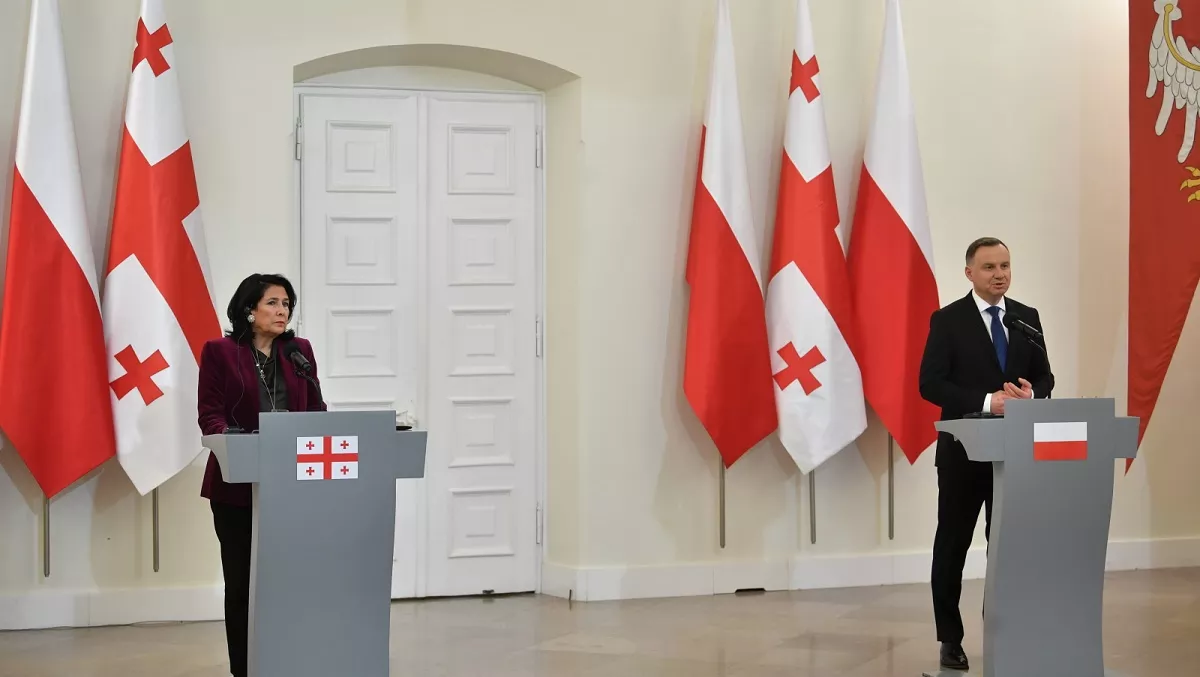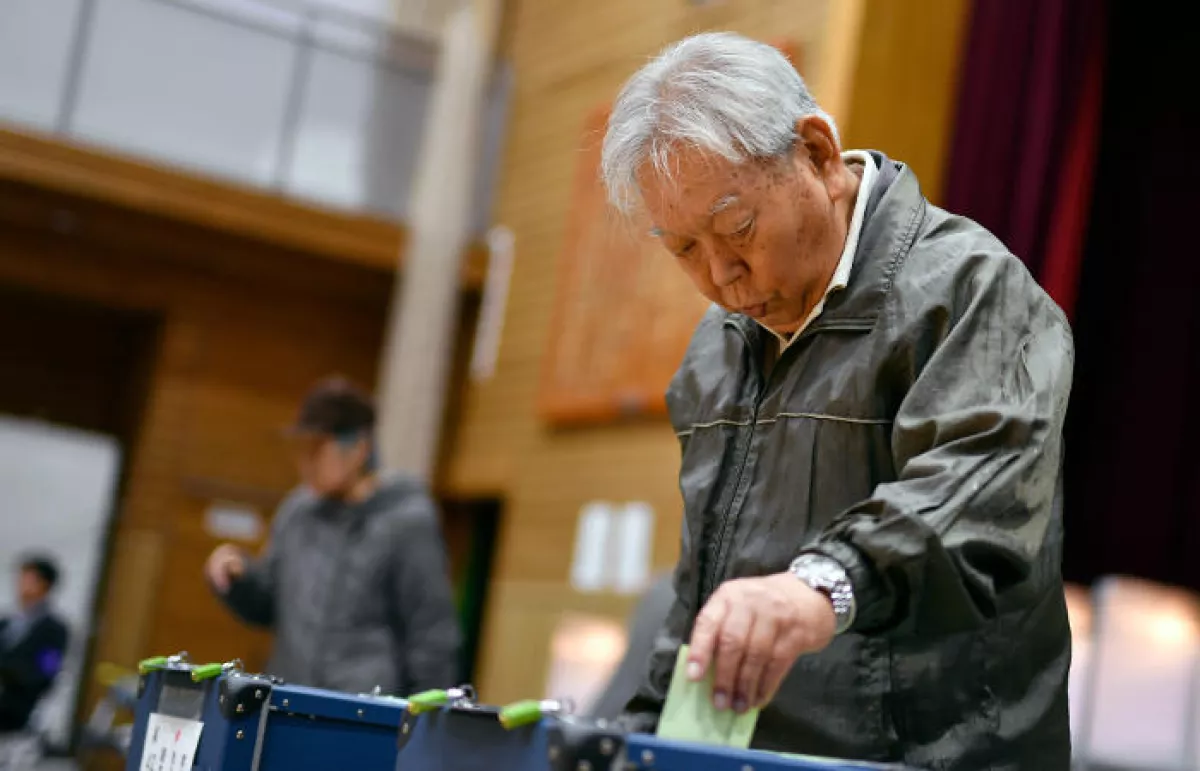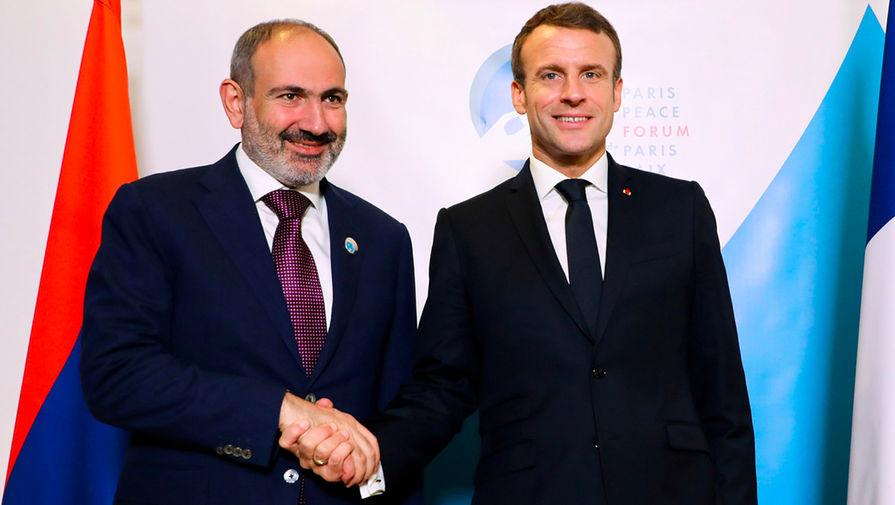Georgia: Struggle for a dignified future Defying Western demands
Georgians are being urged to vote again under foreign, "international" oversight—a demand recently made by the opposition in Tbilisi. The absurdity of this call for external intervention does not seem to trouble the self-proclaimed democrats—they are dissatisfied with the people's choice and want to seek retribution in the West.
However, problems with popular will are not unique to Georgia. Recent elections have put the Western liberal establishment in a bind. Its representatives complain that people are voting against the established political systems and liberal values of the West. The allure of Western models has faded even on the fringes of Europe—while striving for integration with the EU, Georgians and Moldovans are critically reassessing their relationships with the West and asserting their own sovereignty.
State must "show its teeth"
In recent months, the global liberal elite has faced significant challenges. With the looming possibility of Donald Trump, the bane of liberals worldwide, returning to the White House, even the bastions of the Western world have been shaken by electoral defeats. Far-right parties have won several regional elections in Germany, leaving the ruling coalition in Berlin hanging by a thread, hoping for a miracle that will convince Germans to change their political views before national elections next year.
In France, President Macron suffered a resounding defeat in snap national elections and was forced to engage in a series of intrigues to form a new government, outmanoeuvring the actual winners of the elections. Even on the periphery of the EU-NATO, in countries that Brussels considered nearly integrated, the situation has spiralled out of control. In Moldova, only through the tireless efforts of the electoral commissions were missing ballots located to confirm the Moldovans’ desire to join the EU—this situation was salvaged by the presence of the appropriate political forces in power.
In Georgia, however, such forces are absent, and the Georgian electorate did not vote in accordance with Western expectations. Once again, the familiar spectre of a Maidan uprising against alleged Russian interference and the "increasingly authoritarian regime" supposedly established by the Georgian Dream party looms on the horizon. Two notable points arise from this situation. First, even Western media and political elites are cautiously supporting the criticism of the recent elections voiced by the Georgian opposition. After meeting with Georgian President Salome Zourabichvili, even a staunch anti-Russian politician like Polish President Andrzej Duda conceded that there was no evidence of Russian interference in the elections.

Secondly, the Georgian Dream party has begun to restore order in the Georgian state, realizing that otherwise, it could be overthrown by another "Maidan" or colour revolution at the first sign of disagreement with its Western partners. This is a natural inclination for any responsible politician; a state has little value if it cannot enforce its laws or even protect itself, trembling before crowds that sometimes represent only a minority (as was the case in many colour revolutions).
This summer, even European Commission President Ursula von der Leyen demanded that Ukrainian state institutions "show their teeth" and be led by individuals who would not hesitate to wield their power! Yet in Georgia, the West is calling for the opposite, providing yet another example of its hypocritical adherence to its own principles. In a different country and amidst the disorganization of a majority, this approach might succeed—Ukraine under Yanukovych serves as an example. However, in Georgia, the Georgian Dream party is not willing to betray the trust of the majority who voted for it simply because the West demands it.
Ideal democracy
Recently, only one country in the collective West has held elections that were relatively tolerable for the liberal establishment: Japan. The ruling Liberal Democratic Party (LDP) "won" these elections, but not without complications. After a string of corruption scandals involving bribery and kickbacks at the highest levels, the LDP secured significantly fewer parliamentary seats than before. Nevertheless, it remains the largest party in the legislature and will once again form the government alongside its long-time partners.
Despite widespread public discontent, the opposition failed to seize power. How did this happen? The electorate did not disappoint—they obediently stayed away from the polls. This was particularly striking given that the LDP campaigned on platforms of increasing taxes for military spending and restoring Japan's right to engage in war, all amid a continuing devaluation of the yen and unprecedented declines in the living standards of the Japanese people. For instance, while income and expenditures in Germany and Japan were roughly equal ten years ago, Japanese salaries now amount to about half of those in Germany, even as wages in Germany have also significantly depreciated.
Recent observations of Japan's political processes suggest that the country has constructed an ideal Western-style democracy. This political system relies on an expressive minority, sustained by the complete indifference and apathy of the majority. Japanese election campaigns are strikingly unengaging: colourless parties position a few loudspeakers with microphones in crowded areas or drive around in vans equipped with loudspeakers blaring monotonous slogans. Voters tend to avoid such campaigning, creating a void around the campaigners even in busy locations. The country effectively operates under a one-party model, with the Liberal Democratic Party (LDP) holding power uninterrupted since 1955, typically alongside the inconsequential Buddhist Komeito Party.

There are no complaints about the Japanese system from the West; elections are deemed impeccable, and democracy is considered robust. The same can be said for Moldova, where vote counts miraculously shifted in the "correct" direction overnight. This is not the case in Georgia. However, a certain logic exists in these assessments. It is essential to recognize that in the era of mature capitalism, Western approaches are often dictated by geopolitical and strategic considerations regarding specific countries, rather than by the actual situation concerning rights and freedoms within those nations.
Geopolitics of elections
The elections in Georgia did not occur in an abstract corner of the globe or in a geopolitical vacuum. They took place in a country capable of playing a significant role in the ongoing developments both in the South Caucasus and beyond. This context explains the intense reaction from the collective West, which risks losing its constructed infrastructure of "independent civil society," media, and political parties in this struggle. The stakes in the global political arena are too high in the battle for influence among superpowers to neglect local allies.
For the West, the stakes involve the potential discrediting of the current model of European integration within the EU and the parallel Euro-Atlantic integration with the United States for non-Western countries, a fundamental value that has come into question due to the actions of Moldovans and, even more so, Georgians. At present, the EU and NATO, torn by contradictions between Germany and France as well as between "old Europe" and Poland, cannot afford to tolerate even minimal deviations from directives emanating from Brussels.
The Georgian government is, in fact, striving for basic conditions for Euro-integration, the possibility of avoiding conflict with Russia, and the opportunity to strengthen state structures—whose instability in Ukraine culminated in war. Legislation such as the foreign agent law is intended to curb illicit and illegitimate foreign interference in Georgian politics, particularly from non-Western countries.
However, expressing doubts about the Western-imposed model could have detrimental consequences for the influence of the EU and NATO, or even the collective West as a whole. Eroding faith in the validity of the recipes for Euro- and Euro-Atlantic integration would further exacerbate the trend of undermining the hegemony of the "collective West," a trend that has intensified in recent years due to the defeat of the US and NATO in Afghanistan, the West's struggles in its confrontation with Russia and the Houthis, and the rising power of China, among other factors.
When discussing the geopolitics of the Georgian elections and protests, it is also important to consider the more immediate strategic interests of the collective West. A shift of Tbilisi toward a radical anti-Russian stance would allow the West to escalate the conflict in Eastern Europe without further straining the already weakened Ukraine. This approach would involve selectively inflaming tensions along Russia's borders, particularly from Georgia. Pressure on Moscow from this southern front is seen as the most promising strategy, which is evidenced by recent terrorist attacks in Chechnya.
Reinvigorating the Chechen conflict without Georgia is nearly impossible; its decline was closely linked to the restoration of Georgian state authority in border regions with Russia, including the Pankisi Gorge. Armenia, the new ally of the West, cannot effectively replace Georgia in this regard, as it does not share a border with Russia.

There is a third factor to consider. If Georgia cannot be brought to heel—which is practically impossible—it would significantly undermine the EU-NATO expansion plans in the South Caucasus, particularly those aimed at redirecting Armenia toward the West. Given that Yerevan is hesitating to normalize relations with its neighbouring countries, it will have no reliable route to connect with the West—except perhaps through Iran. However, the US has declared Iran the main enemy, alongside Russia and China, making it difficult to shift this narrative "for the sake of Armenia."
The challenge of establishing a reliable logistics network to support the Armenian state affects the entire West, but it hits France particularly hard. The French leadership is currently trying to take the lead in Western expansion in the Caucasus while also engaging in escalating tensions in Eastern Europe.
France has long harboured plans for Georgia, with President Macron hoping for a close ally in Georgian President Salome Zourabichvili. In March 2004, following a mysterious conversation between French President Jacques Chirac and Mikheil Saakashvili, Zourabichvili made a swift leap from her position as France's ambassador to Tbilisi to the role of Georgia's foreign minister, remaining a prominent figure in Georgian politics ever since. In post-Soviet countries, the concept of a "conflict of interest" was not recognized then, nor is it now. Behind the appealing narrative of a woman who has always dreamed of returning to her ancestral homeland lies the more mundane reality of a life spent not only in France but also in French public service.
For Macron, Zourabichvili's election as president of Georgia in 2018 created crucial conditions for heightened engagement in Armenia, where Nikol Pashinyan came to power a year earlier, also eager to forge ties with Parisian politicians. France fears that a more independent Georgian government could disrupt these carefully laid plans, prompting it to leverage its significant influence within the EU and NATO to prevent such an outcome.
In this context, the Azerbaijani government has chosen a constructive approach of non-interference in the internal affairs of its neighbour and respect for the will of the Georgian people. President Ilham Aliyev promptly sent a congratulatory message to Georgian Prime Minister Irakli Kobakhidze on his electoral victory and invited him to visit Azerbaijan to continue the dialogue on cooperation between the two countries.
Baku and Tbilisi share important principles in their political relations. While there are many eager to interpret the current actions of the Georgian government through the lens of the Russia-West rivalry, both they and the Azerbaijani government make it clear that they do not seek hostility; rather, they desire cooperation with both the West and the East. However, these cooperative relationships must be founded on principles of mutual dignity, respect, and equality of different perspectives, rather than on lectures, intimidation, or threats from the Western establishment.








